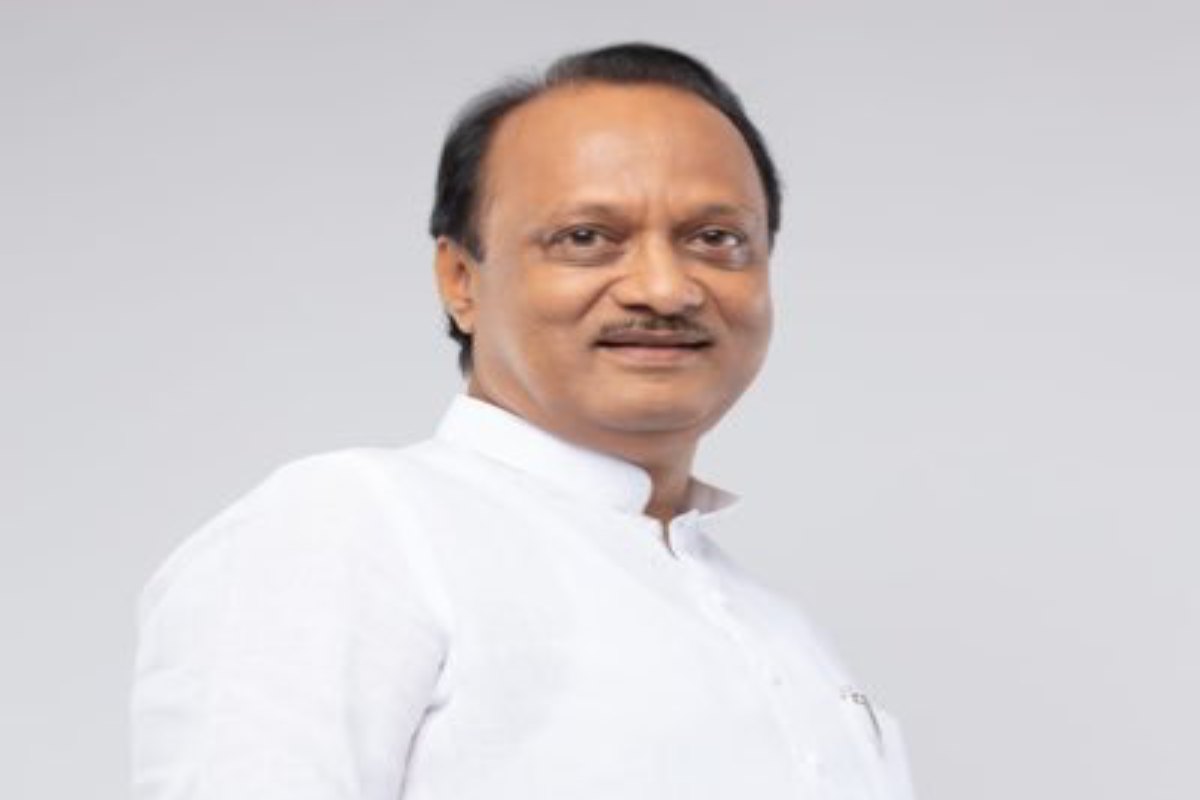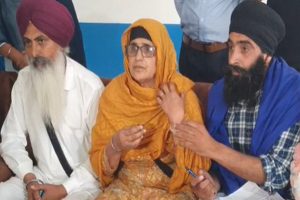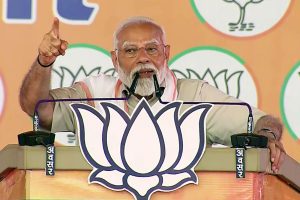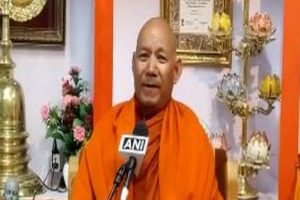Can we even think of the Labour Party poaching a sulk-ing Boris Johnson at the behest of the industry, which will give it funds and a possible edge with conservative voters in a tight race in British polls? Or consider the equal- ly outlandish thought of, say, Nikki Haley crossing over to Joe Biden’s team after failing to evict Donald Trump as the front-running Republi- can challenger in the presidential race? It would be just as preposterous to imagine a Kennedy scion deserting the Democrats for Trump in their opposi- tion to Biden.
In bourgeois democracies, two opposite parties often come together to undermine their electoral mandate. Dressed up as a national cause, the poaching of popularly elected deputies from rival parties is peculiar to Indian democracy, to a lesser extent to other South Asian countries too.
In India, this political cannibal- ism has become rampant. Popularly elected MLAs from this or that party are crossing over to a higher bidder. So the reports say. The phenomenon finds a fair share of coercion too. Threat exists from the powerful induc er of defection of unleashing revenue sleuths or opening criminal probes on vulnerable and, in all probability, cor- rupt members of rival groups, to force a split.
One can only note with vapid contempt the political events unfold- ing in India’s richest state of Maha- rashtra. It’s the richest state, of course, home to the Tatas and Ambanis, but also the province where farmers have committed suicide in droves, in hun-dreds of thousands, a bulk of them since the advent of India’s free market economy in the 1990s.
A chunk of the MLAs till recently loyal to an alliance, which had the Congress party as a key member. broke away on Sunday to join Maha- rashtra’s ruling coalition, of which the BJP is the architect. Ajit Pawar became deputy chief minister, and a handful of MLAs who defected with him were given ministerial posts. The venal move is presumably aimed at foiling opposition unity. The fracture and the re-welding were neither unique nor new.
The group to endure the split is the Nationalist Congress Party (NCP) of which former Maharashtra chief minister Sharad Pawar is the founding leader. The new deputy chief minister is his nephew, Earlier, the Shiv Sena had split to bring down a Shiv Sena government. The defectors formed a new ruling coalition with the BJP. Intriguingly, the latest split involved. Ajit Pawar’s second desertion from the NCP though circumstances of the first event were just as toxic for the coun- try’s asphyxiating democracy. The first time round, Ajit Pawar defected to help form a BJP-led government. The short-lived experiment enabled him to get rid of several corruption cases the BJP flashed at him. The threat dis- solved, he ran back to his uncle’s side.
The venality occurs readily in South Asia, more regularly where elected deputies are bought and sold. Deputies are sometimes hidden away in remote hotels and retreats, away from predatory opponents. The BJP excels in tracking them down.
Riding the nexus is the inevitable- corporate money power. It’s a careful- ly undiscussed fact that India’s pro- business policies initiated by Narasimha Rao in 1991 became possi- ble only after a bunch of MPs were bribed to prevent the government from falling. The MPs were jailed, but only after the reforms became secure from democratic challenge.
Sharad Pawar began as a key asso- ciate of Rajiv Gandhi and Narasimha Rao in Congress governments but cut loose from the party after Sonia Gand- hi was anointed party president, and apparently, came close to becoming prime minister. His ‘nationalist Con- gress had one agenda: to stop Sonia from becoming prime minister. Her foreign origin was a cover, and the chorus was picked up by other Con- gress rivals, chiefly the BJP.
The foreign tag seemed to have little to do with the hostility to her. The truer worry was more likely rooted in the 1985 Congress centenary address given by her husband. Rajiv Gandhi who was leading the party’s celebra- tions in Mumbai when he warned the city’s business captains to stop “riding the backs of Congress workers”. For that and more Rajiv was laid low with the Bofors scam and a potential palace coup, all the way to his ghastly death. That’s when the idea was tested through sections of the corporate media, of framing the Gandhi family as a political liability. Induced hostili-ties have lurked within the party and outside. And yet, Sharad Pawar has not publicly endorsed his nephew’s join- ing the BIP-sponsored regime in Maharashtra. If anything, he has promised to rebuild the party, to keep the alliance with the Congress and the Shiv Sena intact. If that works, it could spoil Prime Minister Narendra Modi’s chances in the important state in gen- eral elections next year.
In letting Ajit Pawar make his move, however, the uncle could be signalling his pivotal role for other opposition groups. At the opposition’s Bihar meeting recently much thought was focused on the elusive promotion of unity. Pawar did not figure as a major contender to lead the cluster. The unspoken toss-up was between Mamata Banerjee and Nitish Kumar. the chief ministers of West Bengal and Bihar respectively, and Congress scion Rahul Gandhi. As the most articulate vocal campaigners against crony capi- talism, Arvind Kejriwal’s Aam Aadmi Party and Congress, as recast by Rahul ought to be kindred spirits, but they are not. Forces are at work to not let the Congress stitch up powerful alliances. Pawar, on the other hand, has been generous in his praise for the tainted Adani Group.
The extent of political cannibal- ism is difficult to surmise. Key state govemments would not belong to the BJP without poaching. And thus, opposition parties planning a joint campaign against Mr Modi would do well to weed out these vulnerabilities first. Without which corporate-fund- ed ghouls, would not be averse to bleeding Indian democracy to its slow death.











